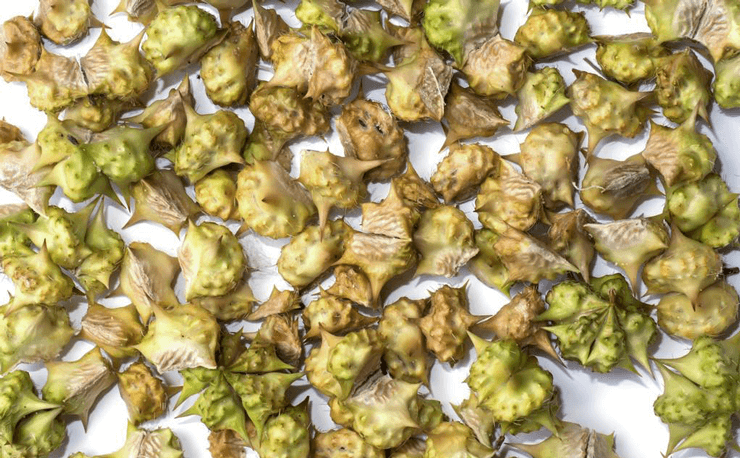Taking the Natural remedy Tribulus Terrestris saponins has remarkable effects in the treatment of sterility since it helps to improve the quality and increase the amount of sperm in men, at the same time as it is a stimulant of sexual desire and libido in women.
Tribulus Terrestris, a pro-testosterone to increases fertility
This plant, whose millenarian origin dates back to India and China, is widely used as pro-testosterone.
Natural remedy Tribulus t. It was used as a diuretic, tonic, and aphrodisiac, for urinary problems, and gout, in pictures of impotence and sterility.
Its active ingredients are extracted from fruits that contain resins, tannin, sterols, essential oils, diastase, and saponins.
Today it is known that the main active product is protodioscine (PTN). The administration of PTN extract increases libido in both sexes and sperm production (spermatogenesis). Also, in laboratory tests, it was observed that it dilated the coronary arteries and perfused them. It also raises levels of testosterone and luteinizing hormone (LH) and may increase DHEA levels in men.
In women, it is indicated in the treatments of Sexual Desire Hypoactive or Inhibited and some propose it in cases of sterility due to ovarian factors.
Mechanism of action
Natural remedy Protodioscin (PTN), the active ingredient in Tribulus Terrestris saponins, increases DHEA levels in the blood, thus increasing libido, muscle mass, general well-being, and the immune system. PTN would convert testosterone to dihydrotestosterone (DHT). In turn, DHT increases the production of red blood cells (erythropoiesis) and hemoglobin with the consequent increase in oxygen transport.
The PTN stimulates the germ cells of the testicles and those of Sertoli, increasing the spermatogonia, spermatocytes, and spermatids (which are the progenies of sperm) without altering the seminiferous tubules.
Tribulus Terrestris saponins regulate the hormonal balance of the body without exceeding physiological limits.
Summary of its effects
- Increase the amount and sperm mobility
- Facilitates an increase in testosterone, DHEA, and estradiol
- Stimulates FSH (follicle-stimulating hormone) in women and LH in males
- Help in sterility treatments
- Improves desire and libido in both sexes
- Improves sexual potency in males
Tribulus Terrestris is indicated between 500 to 1500mg of dry extract per day. Two or three months can be used and improvements can be seen after 5-7 days.
The capsules of Tribulus Terrestris are marketed both in presentations that only contain extract of this plant and in compound formulas that combine zinc, magnesium, or vitamins; inulin, carnitine, fenugreek, or other energizers or aphrodisiacs such as maca, damiana, or ginseng
In what cases should it be avoided?
The precautions are:
- Men with BPH (benign prostatic hyperplasia) or with PSA (prostate-specific antigen) high.
- Pregnancy and lactation.
- It should not be used together with hormones except under medical supervision. It does not usually give virilizing effects on women.
Tribulus Terrestris: Origin
Known as burr and in Sanskrit as Gokshura, Natural remedy Tribulus Terrestris (family Zigophyllaceae) is distributed in the warm areas of Eurasia, Africa, and northern Australia. It is a creeping herbaceous plant up to 50 cm long, its flowers are yellow and its fruit is characterized by having thorns. This fruit is known in China as Bai ji li and in the United States as goat head, caltrop, or puncture vine. Its scientific name, Tribulus, refers to the tríbulo, a weapon with four metal spikes.
In ancient Greece, it was already consumed to treat headaches, sexual dysfunction, and nervous disorders. In traditional medicine, the tríbulo has been consumed to increase libido and treat urinary tract infections, as an antihypertensive, tonic, astringent, and inflammation. In Ayurvedic medicine, it has been used for centuries to treat impotence, sexual weakness, and venereal diseases.
It is a plant rich in steroidal saponins (including protodioscin and protogracillin), alkaloids (tribulusterin), flavonoids (kaempferol, kaempferol-3-glucoside, kaempferol-3-rutinoside, and tribuloside), lignanamides, sterols, and cinnamic amides. Its leaves, flowers, and fruits are powerful tonics and diuretics.
Tribulus Terrestris: Contraindications and Side Effects
It is not recommended for people who suffer from cholestasis (a condition in which the flow of bile from the liver is reduced or obstructed) and it must be borne in mind that plants rich in saponins can produce irritation of the gastric mucosa and reflux. Toxicology tests performed on laboratory animals indicate very low toxicity.
It is discouraged for pregnant or lactating women. Use in children under 18 is not recommended. Do not exceed the recommended daily dose.








